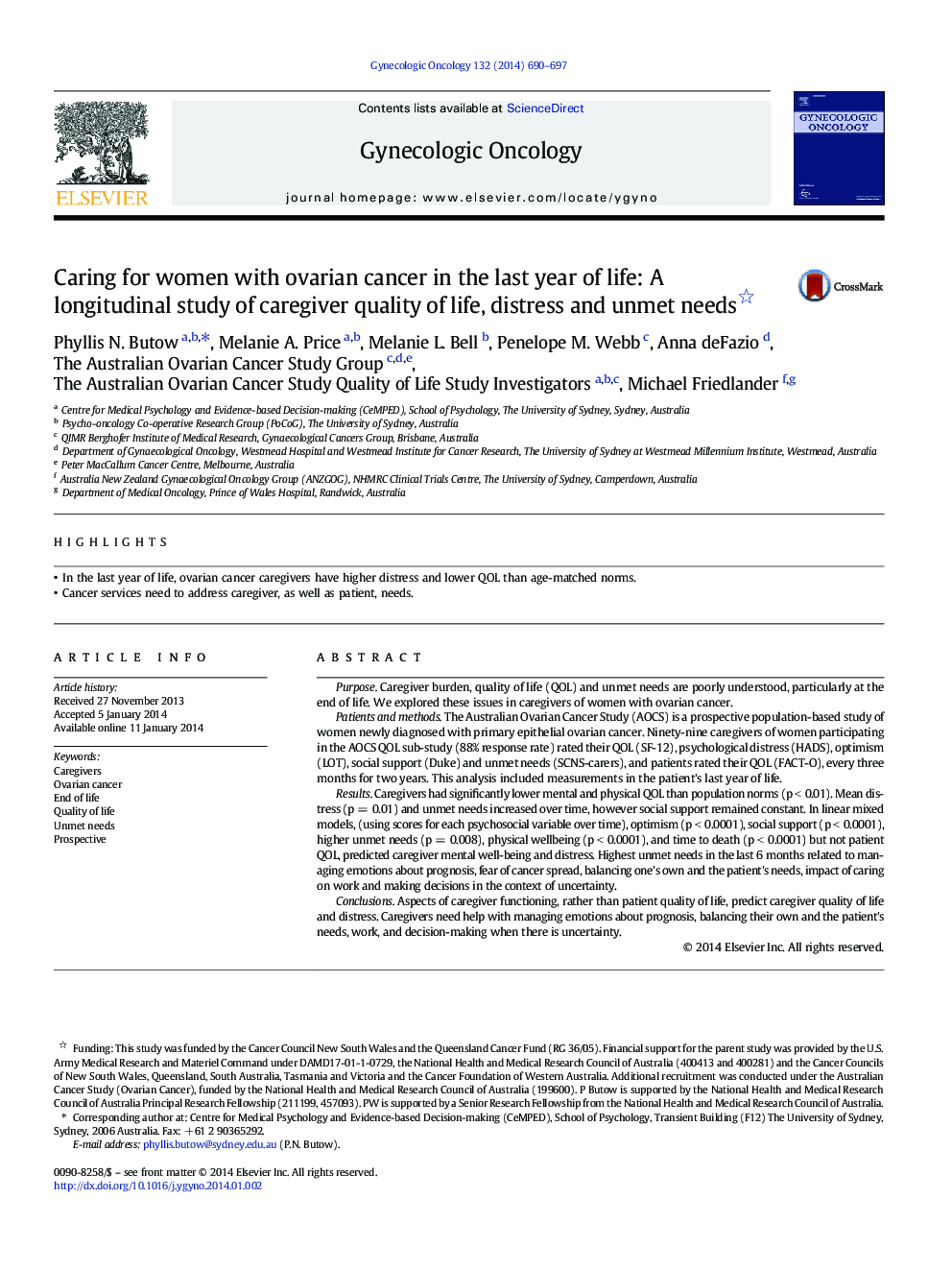| کد مقاله | کد نشریه | سال انتشار | مقاله انگلیسی | نسخه تمام متن |
|---|---|---|---|---|
| 6182829 | 1254037 | 2014 | 8 صفحه PDF | دانلود رایگان |
- In the last year of life, ovarian cancer caregivers have higher distress and lower QOL than age-matched norms.
- Cancer services need to address caregiver, as well as patient, needs.
PurposeCaregiver burden, quality of life (QOL) and unmet needs are poorly understood, particularly at the end of life. We explored these issues in caregivers of women with ovarian cancer.Patients and methodsThe Australian Ovarian Cancer Study (AOCS) is a prospective population-based study of women newly diagnosed with primary epithelial ovarian cancer. Ninety-nine caregivers of women participating in the AOCS QOL sub-study (88% response rate) rated their QOL (SF-12), psychological distress (HADS), optimism (LOT), social support (Duke) and unmet needs (SCNS-carers), and patients rated their QOL (FACT-O), every three months for two years. This analysis included measurements in the patient's last year of life.ResultsCaregivers had significantly lower mental and physical QOL than population norms (p < 0.01). Mean distress (p = 0.01) and unmet needs increased over time, however social support remained constant. In linear mixed models, (using scores for each psychosocial variable over time), optimism (p < 0.0001), social support (p < 0.0001), higher unmet needs (p = 0.008), physical wellbeing (p < 0.0001), and time to death (p < 0.0001) but not patient QOL, predicted caregiver mental well-being and distress. Highest unmet needs in the last 6 months related to managing emotions about prognosis, fear of cancer spread, balancing one's own and the patient's needs, impact of caring on work and making decisions in the context of uncertainty.ConclusionsAspects of caregiver functioning, rather than patient quality of life, predict caregiver quality of life and distress. Caregivers need help with managing emotions about prognosis, balancing their own and the patient's needs, work, and decision-making when there is uncertainty.
Journal: Gynecologic Oncology - Volume 132, Issue 3, March 2014, Pages 690-697
